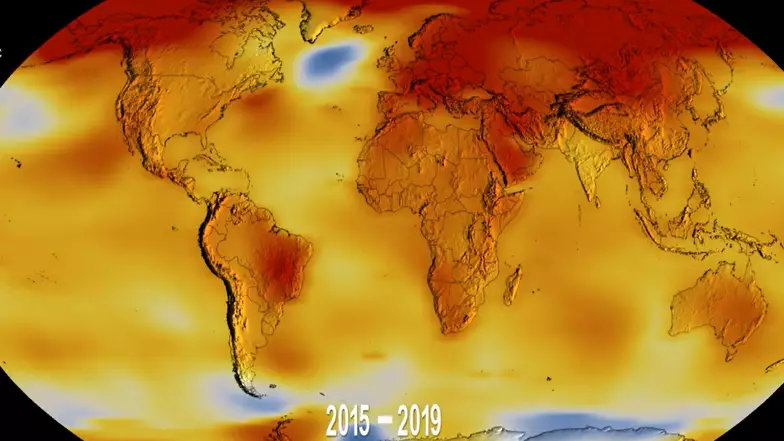
Earth is on track to get hotter than it's been in the last 50 million years, according to a new study.
Researchers from Germany and the US have analysed tiny fossils to help reconstruct the Earth's climate all the way back to the age of the dinosaurs.
Since then, the Earth has gone through four climate states - hothouse, warmhouse, coolhouse and icehouse.

Hold on to your hats because here comes the science bit; for the past three million years, we've been in an 'icehouse' state, which is characterised by alternating glacial and inter-glacial periods
Advert
However, the study's authors reckon we're now on our way to a warmhouse or hothouse state due to greenhouse emissions and other human activities.
These warmhouse conditions were last seen during Eocene epoch, which ended around 34 million years ago.
During the early Eocene, there were no polar ice caps and average global temperatures were around 9°C to 14°C higher than today.
Professor James Zachos, from the University of California, who co-authored the study, said: "The IPCC (Intergovernmental Panel on Climate Change) projections for 2300 in the 'business-as-usual' scenario will potentially bring global temperature to a level the planet has not seen in 50 million years."

He added: "We have known for a long time the glacial-inter-glacial cycles are paced by changes in Earth's orbit, which alter the amount of solar energy reaching Earth's surface, and astronomers have been computing these orbital variations back in time.
Advert
"As we reconstructed past climates, we could see long-term coarse changes quite well. We also knew there should be finer-scale rhythmic variability due to orbital variations, but for a long time it was considered impossible to recover that signal.
"Now that we have succeeded in capturing the natural climate variability, we can see the projected anthropogenic warming will be much greater than that."
Fellow author and marine geologist Thomas Westerhold said: "We now know more accurately when it was warmer or colder and have a better understanding of the underlying dynamics and the processes that drive them.
"The time from 66 to 34 million years ago - when the planet was significantly warmer than it is today - is of particular interest, as it represents a parallel in the past to what future anthropogenic change could lead to."
Advert
You can read the full study in Science, here.
Featured Image Credit: NASATopics: World News, climate change